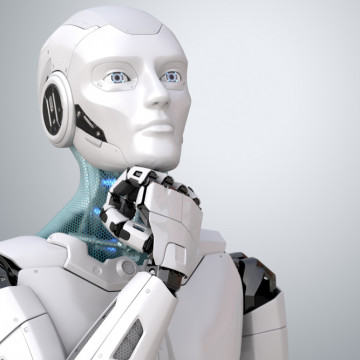

Year 11 Applied Computing Units 1 and 2
Overview
Applied Computing is a general introduction to computing.
Unit 1
Data analysis and visualisation
You will learn to take raw data through a transformation into information with meaning using software tools to access, select and manipulate authentic data from large data repositories. We also learn to present the key aspects of the data in an appropriate visual form. You will isolate the data and check its integrity, then you will create data visualisations that aim to reduce the complexity of data by using designs that illustrate patterns, connections and structure. These visualisations should make it easier for readers to interpret complex data, so they need to be clear, usable and relevant.
Programming
Explore the fundamentals of using a computer language to achieve a purpose. You will develop skills in interpreting solution requirements and in designing working modules that can be applied to complete a series of small discrete tasks that in combination will form your solution.
Unit 2
Innovations
you will invent your own project to create an innovative digital solution for an identified need or opportunity. This project will run for 12 weeks in Semester 2. You will need to negotiate and collaborate as you explore your research project. Because this topic is open-ended, it can accommodate different interests. You will not need to buy a new computer, your project can be completed on standard hardware you use for other VSV studies.
Networks
You will investigate how networks with wireless capability exchange data and information locally and globally. We also examine the hardware and software components and procedures needed to connect and maintain a wireless network. We look at how the security of data which is stored or exchanged can be compromised in wireless networks. We then apply this technical knowledge to design a network with wireless capability that meets a need or opportunity. You will then how data and information are transmitted using a software tool to depict the components of your network and its interactions.
Who is it for?
Applied Computing Unit 1 and 2 based on the Victorian Curriculum is designed for students who enjoy problem solving, want to understand technology’s inner workings, like to create and innovate, seek practical skills, are interested in emerging trends, enjoy collaborative work, excel in logical thinking, aspire to tech careers, prefer hands-on learning, and are intrigued by data exploration. This subject offers a platform to explore technology, coding, data visualization, and emerging tech trends, making it an engaging choice for students with these interests and aspirations.
What do you do?
Activities you will engage in include:
- creating data visualisations
- simple PHP programming
- designing networks
- innovations project to research an aspect of computing or digital technologies.
Data visualisation tells the story of the data. Using software, you will use found datasets to build information graphics to present the meaning behind the data. Tableau is a drag and drop software tool which can transform data into meaning. Excel will be used to prepare the data into information.
Programming theory will be in pseudocode, which can be adapted to any programming language. Specifically PHP will allow dynamic webpages to be created.
Innovations will be open-ended and negotiated. Your choice will determine where this project will go.
Networks will explore the fundamentals of every computing system. The protocols behind the internet, Wi-Fi, Bluetooth and the NBN will be examined.
What skills do you need?
Some basic computer skills are helpful and the ability to work independently is important.
What skills do you develop?
This subject develops your skills in logic, enhances your math and design skills and gives you a better understanding of the holistic approach to problem-solving. It will help you become an independent learner.
Requirements
You must have access to the Internet in order to access this course. All weekly work will be viewed through VSV online and then submitted online.
A computer device with Windows 10 or macOS 10.14 or greater is required. A user account with administrator privileges is needed to install software. Note: iOS, Android, and Chromebook devices are not suitable for the variety of applications employed in this course.
Things to think about
It’s advisable for students to have a basic understanding of computer literacy and be comfortable navigating digital environments. Familiarity with basic computer operations, file management, and using common software applications is helpful.
Literacy and Numeracy: Applied Computing involves reading, comprehending, and analysing various texts related to computing concepts, as well as interpreting data and creating visualizations. Strong literacy and numeracy skills are essential for effectively grasping and communicating technical information.
Problem-Solving Skills: Applied Computing often requires logical thinking and problem-solving abilities. Being able to break down complex issues into smaller, manageable components and developing step-by-step solutions is crucial.
Interest in Technology: Having a genuine interest in technology, computers, and how they work is advantageous. Curiosity and enthusiasm will drive your learning experience.
Problem-Based Learning: Be open to problem-based learning approaches. Applied Computing often involves hands-on projects and real-world scenarios, where students learn by actively engaging in tasks and projects.
Time Management: Understand the expected workload for the course. Applied Computing may involve both theoretical understanding and practical implementation. Students should be prepared to manage their time effectively to balance classroom learning, assignments, and individual practice.
Things you can do now
Embark on the journey of exploring programming languages by engaging in tutorials available on platforms like https://www.w3schools.com/.
Initiate the process of understanding data and its visual representations.
Commence the exploration of emerging technologies through research.
Embark on an inquiry into networks and the realm of network security.
Things to have a look at
PHP 7 Tutorial
W3schools resource
The following textbook is recommended:
Applied Computing VCE Units 1 & 2 By: Gary Bass, Selina Dennis, Therese Keane, Anthony Sullivan